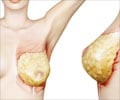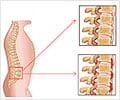
‘The patients who lived alone were more likely to stay an additional night in the hospital prior to discharge and utilize more home health services, especially older patients.’
Tweet it Now
"In the past, most surgeons have been reticent to discharge patients directly home after joint replacement surgery if they live by themselves; instead, opting for such patients to enter a rehab facility," said lead author William J. Hozack, MD, an orthopaedic surgeon at The Rothman Institute and professor of orthopaedic surgery at the Sidney Kimmel Medical College at Thomas Jefferson University. "However, we found that patients living alone were able to safely recover without any increase in the rate of complications. Even more strikingly, patients were generally happy and content being in the comfort of their own home during recovery." The study, "Even if You Live Alone, There’s No Place Like Home after Total Joint Arthroplasty," (LINK) involved 769 patients undergoing primary THR or TKR. Of these, 138 patients lived alone and 631 lived with other people. In both groups, patients age 75 and older were well represented. The patients who lived alone were more likely to stay an additional night in the hospital prior to discharge and utilize more home health services, especially older patients. Limited support without weekly visits was reported by 37.2 percent of patients living alone, although nearly 80 percent had a friend or relative living within 15 miles who could provide help if needed.
Among the results of the study:
There was no increase in complications or unplanned clinical events for patients living alone compared to those living with other people (10.9 percent of patients living alone had complications, compared with 9.5 percent of those recovering at home with support).
There were no significant differences in functional outcomes following surgery, or in reported pain. Patient satisfaction scores were equivalent in both sets of patients after 90 days.
Advertisement
Given the cost savings of in-home recovery, the emotional benefits of patients recovering in familiar surroundings, and no measurable difference in pain, complications or functional outcomes, "we believe home discharge is appropriate for the vast majority of patients undergoing joint replacement, including the nearly 20 percent of patients living on their own," said Dr. Hozack.
Advertisement
Source-Eurekalert













